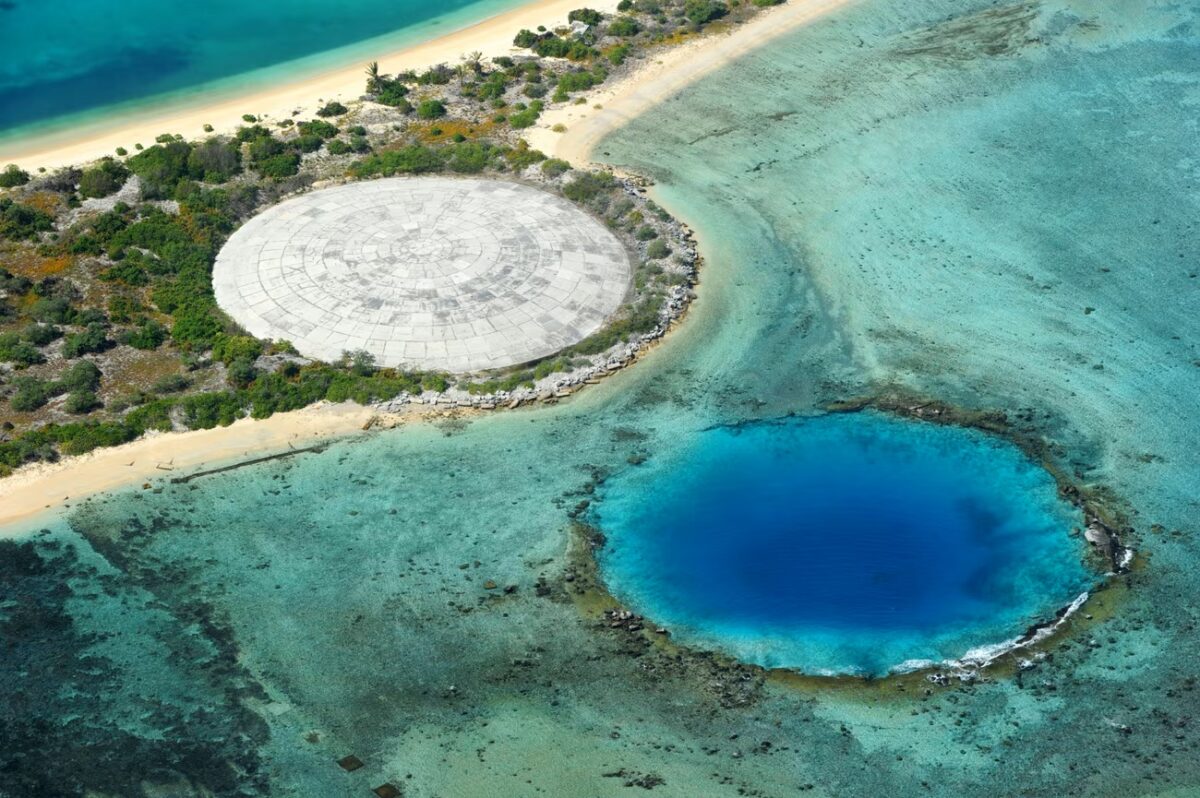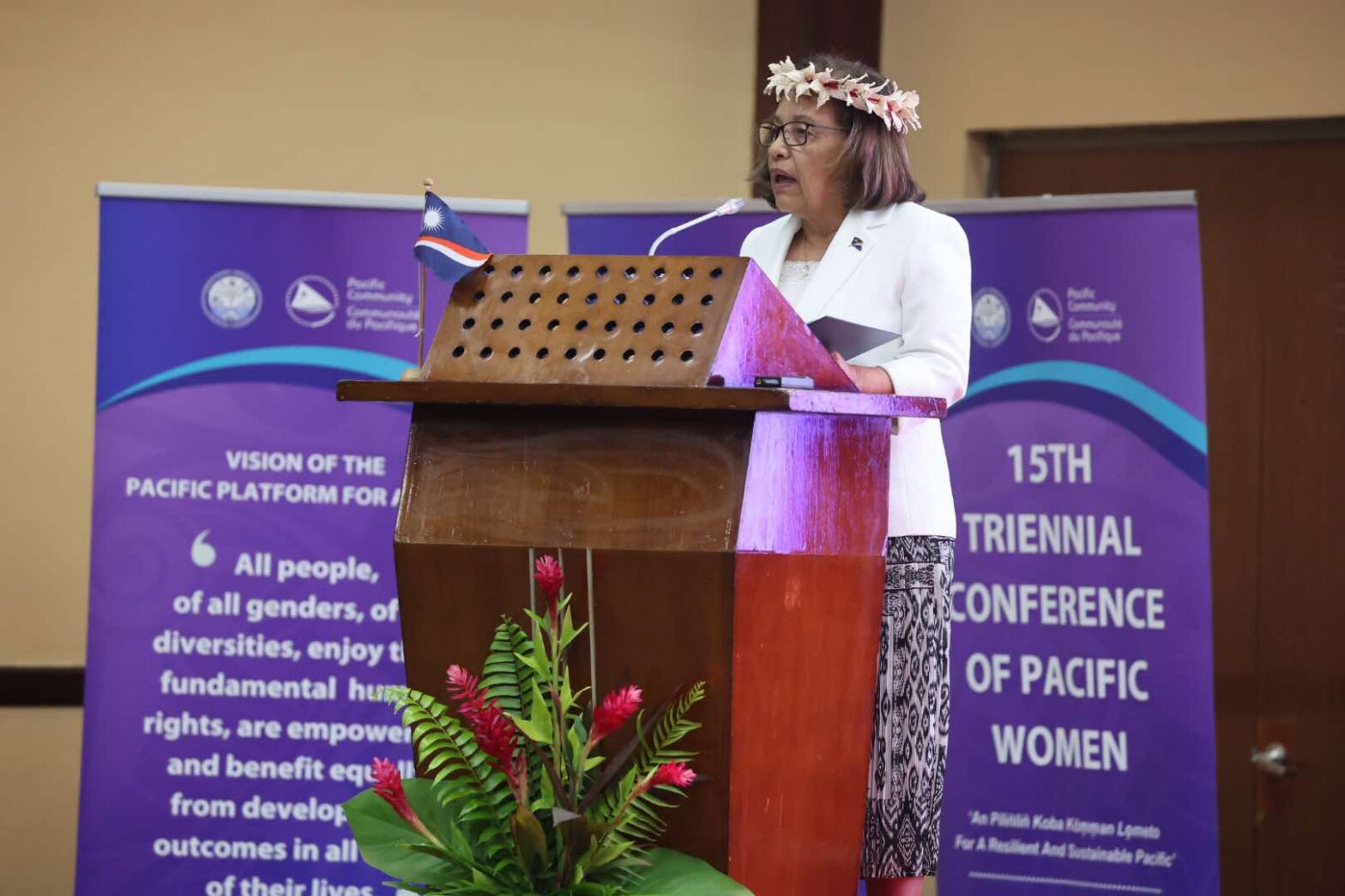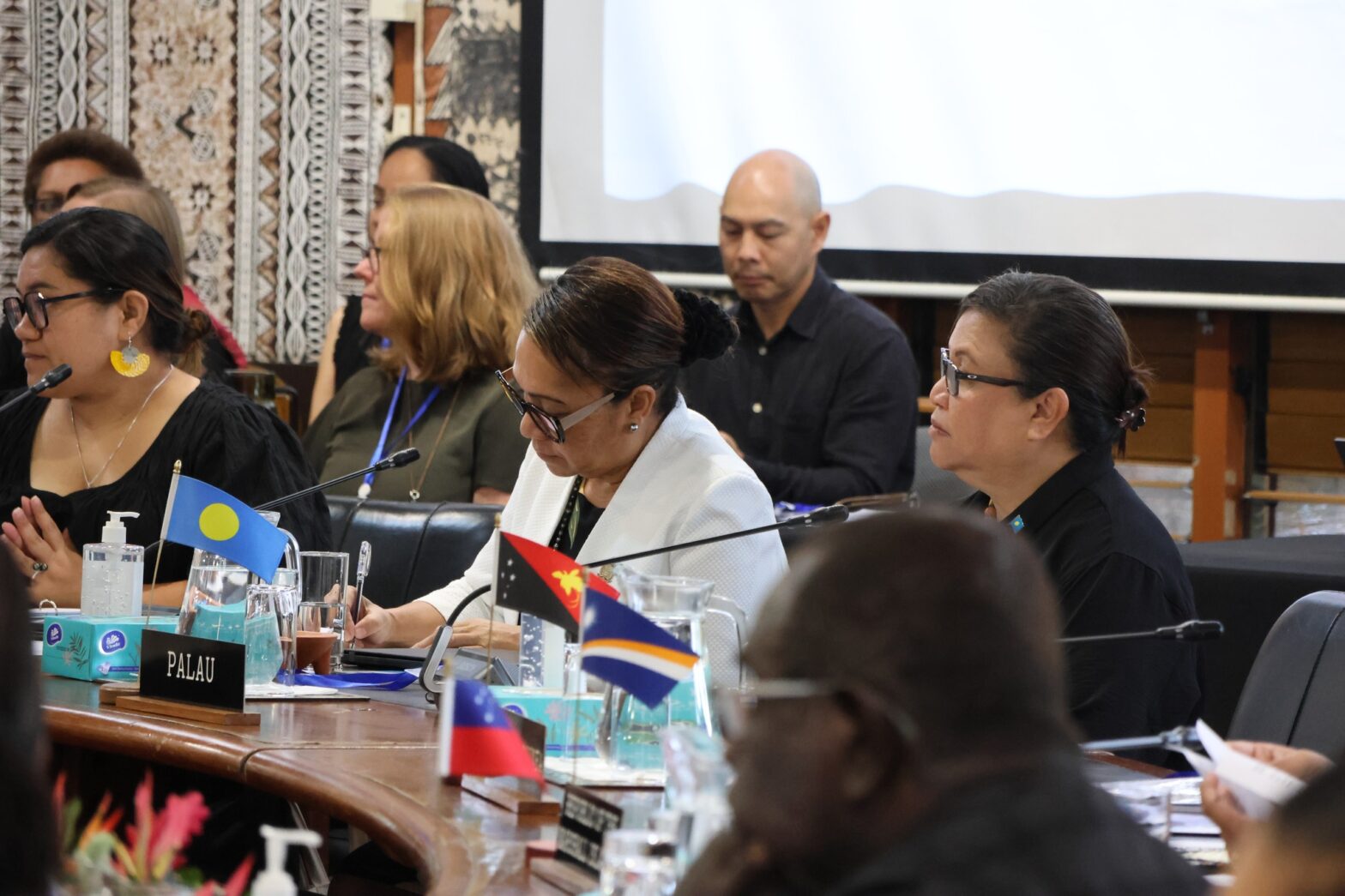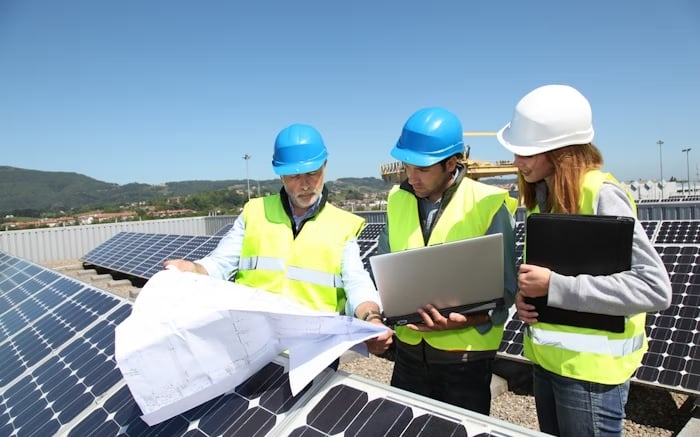Almost eight decades after the last nuclear bomb detonated in the Marshall Islands, there is a call from the Pacific region for a concerted effort to study its impacts on women and girls.
The Pacific solidarity call for action was made at the 15th Triennial Conference of Pacific Women and the 8th Pacific Women’s Ministers Meeting, which ended Thursday, 26 July 2024.
Marshall Islands Minister for Women and Chairman of the meetings, Jess Gasper Jr said it was a huge win for the country especially for the Marshallese who have lived in exile for 78 years because of contamination.
“This is something that has been on the minds of not just the Bikini people but for the atolls that are affected. For the women that had jellyfish babies and have multiple complications with cancer issues, we want to thank all the island nations that are standing in solidarity with the Marshall Islands. Having something in the outcomes document is a huge win for the Marshall Islands.”
In the outcomes of the conference, there is a recommendation for further study on the connection of the health issues in Marshall Islands and the nuclear testing.
“We seek comprehensive evidence-based data that can effectively connect health outcomes directly with our nuclear legacy. This data is essential for informing our policy securing necessary resources and ultimately ensuring the health and wellbeing of our people,” Minister Gasper said.
Marshall Islands has the highest rate of cervical cancer in the world at 79 per 100,000 women, while one in eight women will suffer from breast cancer in their lifetime.
“The long-term health impacts on our communities, particularly on women and girls, are not just historical facts. They are lived experiences,” Gasper said.
Meanwhile, beyond the nuclear legacy, deeply rooted gender disparities are said to pose significant challenges for women’s health in the Pacific.
According to the Pacific Community’s briefing on the status of gender equality in the region, we’re not progressing as fast as we need to, and we need regional action to accelerate gender equality targets and commitments.
The conference also addressed the deeply rooted gender disparities impacting women’s health in the Pacific. Cultural norms, limited healthcare access, and economic inequality were identified as significant barriers.
SPC Principal Women Lead Mereseini Rakuita believes that while progress has been made on gender equality, a regional accountability mechanism is crucial. She suggests that existing regional meetings could serve as a foundation for this mechanism, but a more formal structure is needed to ensure commitments are met and progress is tracked effectively.
“It’s important to start asking, what will the accountability mechanism for gender equality look like for the region. Because if we are to achieve what we’re trying to achieve (that is important), accountability mechanisms are key. And that needs to be entrenched into the gender equality ecosystem for the Pacific,” she said.




